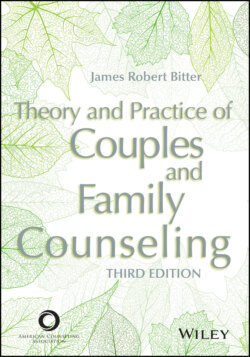Читать книгу Theory and Practice of Couples and Family Counseling - James Robert Bitter - Страница 57
Michael White and David Epston
ОглавлениеMichael White and David Epston (1990) seemed to burst on the scene in the last decade of the 20th century. Both were from Down Under, but separated by the Tasman Sea. White worked in Adelaide, South Australia, and Epston had his home and practice in Auckland, New Zealand. White initially studied the work of Bateson and Erickson, and for a while he was caught up in the story of cybernetics. It was David Epston who brought the concept of narratives into their conversations. Over the next two decades, these men would come to view clients as people living within problem-saturated stories, or stories that had fused with problematic aspects of the dominant culture. Working with family stories that had been taken over by problems of encopresis, anorexia, delinquency, or schizophrenia, they adopted a decentered position that was similar to a not-knowing position: They also developed a process called externalization, in which the power and effects of problems were explored and mapped in relation to the person and the family. This deconstruction opened up avenues for hearing about unique events, exceptions to the dominant story, where the person or the family took a preferred stand. It was these latter stories that narrative therapists sought to develop and coconstruct. These preferred stories were broadcast through a range of supportive communities, including extended family, friends, outsider witnesses, and even definitional ceremonies. Epston especially developed many different forms of certificates, letters, and ceremonies to celebrate the initiation of preferred stories.
Michael White and his wife Cheryl developed and managed narrative training at their Dulwich Centre in Adelaide, South Australia. In the United States, Jill Freedman and Gene Combs also left their strategic therapy background behind, opening a training center in Evanston, Illinois, based on their book Narrative Therapy (Freedman & Combs, 1996). Similarly, Jeffrey Zimmerman and Vicki Dickerson (1996) created the Bay Area Family Therapy Training Associates, specializing in work with adolescents, addictions, and couples. They actually taught narrative therapy at MRI, and their book If Problems Talked (Zimmerman & Dickerson, 1996) is considered a major contribution to the narrative therapy literature. Stephen Madigan (2011) is based in Vancouver, British Columbia, and his center, in addition to hosting numerous narrative therapy conferences, specifically works with troubled youth and eating disorders.
In 2008, Michael White died of heart failure while at dinner with friends in San Diego, California.
